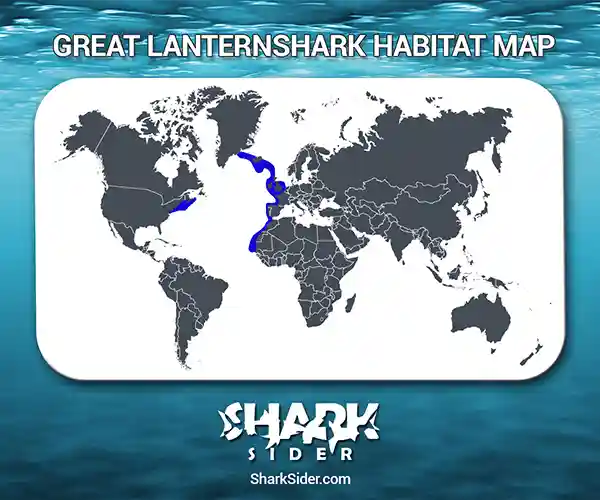The great lanternshark on initial discovery was named based on the assumption that it was a bioluminescent species; however, this assumption has been challenged in recent years.
Great Lanternshark Scientific Classification |
|
| Kingdom | Animalia |
| Phylum | Chordata |
| Class | Chondrichthyes |
| Order | Squaliformes |
| Family | Etmopteridae |
| Genus | Etmopterus |
| Scientific Name | E. princeps |
Description
On average, great lanternsharks are about 2.1 ft long, reaching a maximum of 2.5 ft. The dorsal fins have a spine in a groove close to them, while the caudal fin is broad and long. They are either black or very dark brown.
Where do they live
Map Of The Great Lanternshark’s Habitat

The range of this shark in the northwest Atlantic appears to be from Nova Scotia in Canada to New Jersey in the States. While in the northeast Atlantic, they have been spotted in Greenland, Iceland, northwest Africa, and the Azores.
Great lanternsharks live between 1,870 ft and 7,200 ft around the continental slopes.
Behavior
Reproductive
Unknown but assumed to be ovoviviparous.
Interactions with humans
The IUCN classified this shark as “Least Concern” or “LC”.
